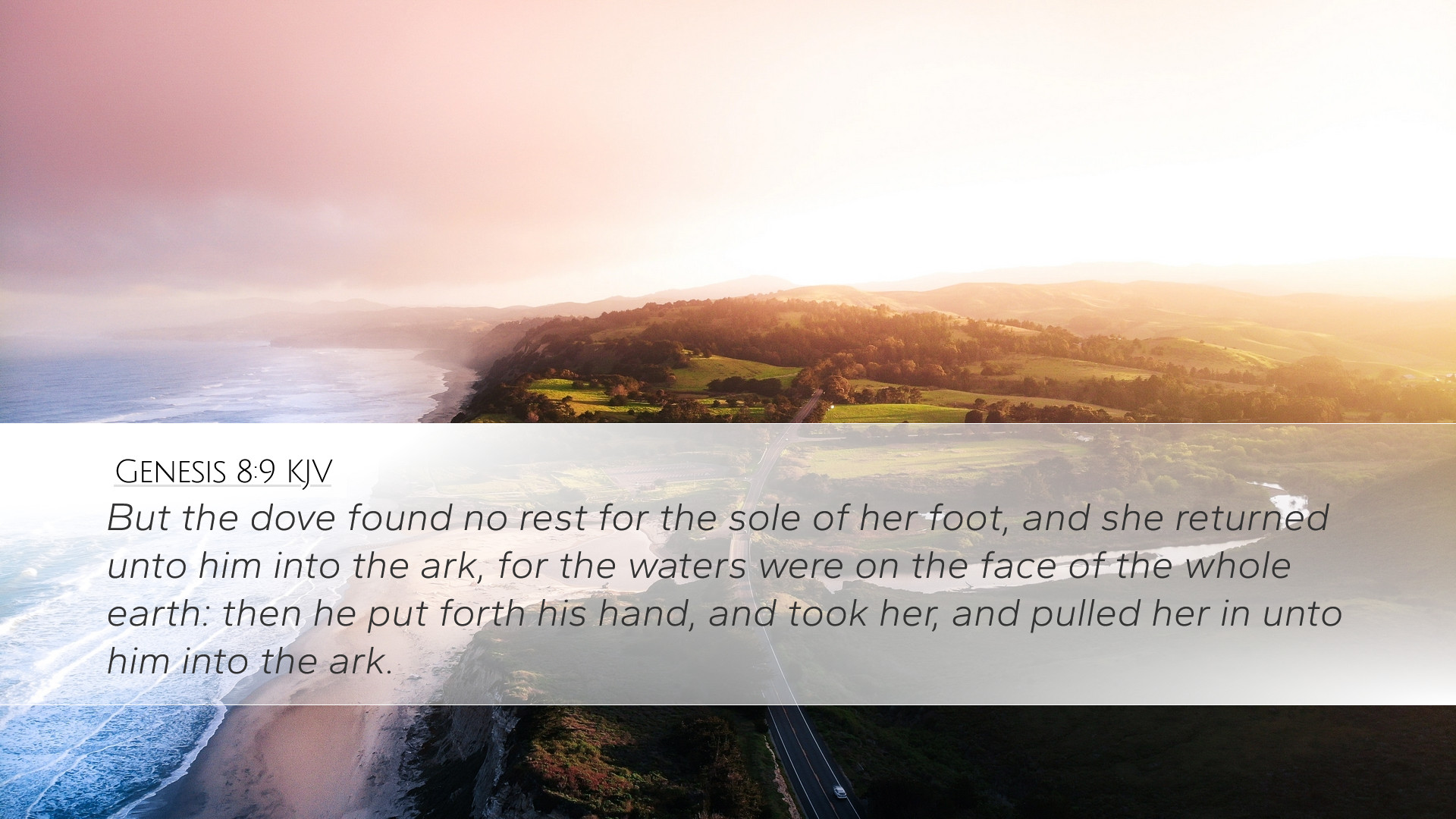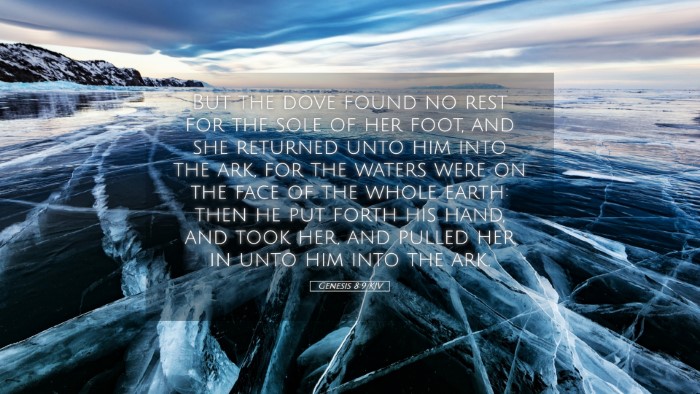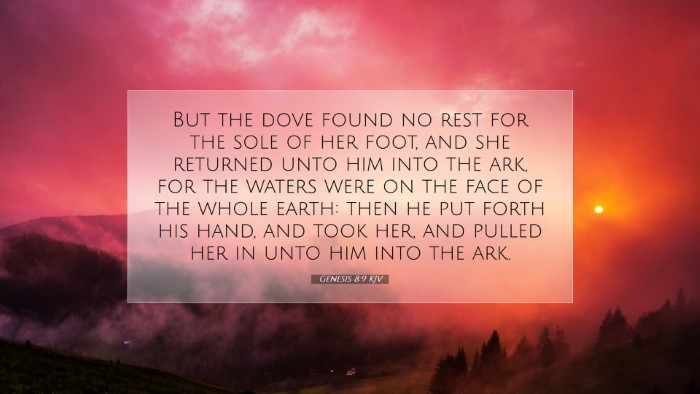Commentary on Genesis 8:9
Verse: "But the dove found no rest for the sole of her foot, and she returned unto him into the ark, for the waters were on the face of the whole earth: then he put forth his hand, and took her, and pulled her in unto him into the ark."
Introduction
Genesis 8:9 occurs within the narrative of Noah’s flood, highlighting a crucial moment in God's covenant with creation. It brings forward themes of faith, hope, and divine providence. The imagery of the dove searching for rest symbolizes the human soul's quest for peace and security amidst chaos.
Contextual Overview
This verse appears after the floodwaters had prevailed over the earth for several months. Noah, having obeyed God's command to construct the ark, was now in a position to assess the state of the world after judgment. In this context, the dove serves as an agent of divine communication and revelation, returning to Noah as a symbol of both hope and the necessity of reliance on God.
Theological Insights
1. Emblem of the Holy Spirit:
Matthew Henry notes that the dove is often interpreted as a representation of the Holy Spirit. Just as the Spirit descended upon Jesus at His baptism, the dove in Genesis serves as a precursor to God's readiness to restore peace. The dove's return to Noah demonstrates the Spirit’s role in guiding believers toward divine truth and comfort.
2. Human Pursuit of Rest:
Albert Barnes emphasizes the dove’s search for rest, which can parallel humanity's search for spiritual fulfillment outside of God's provision. The dove's inability to find a place to land highlights the futility of seeking peace in a tumultuous world. Only in returning to Noah, who represents the place of safety, does it find rest. This reflects the biblical theme that true peace is found in reconciliation with God.
3. The Cycle of Seeking and Returning:
Adam Clarke discusses the cyclical nature of longing and fulfillment as portrayed by the dove’s journey. The idea that the dove “found no rest for the sole of her foot” communicates the reality of humanity's restlessness and the eventual return to God’s presence for solace. Pastoral teachings could draw on this imagery to encourage the congregation to seek rest in Christ amidst life's tribulations.
Exegesis of Key Themes
-
Restlessness of the Created Order:
The waters covering the earth symbolize judgment and chaos, while the dove's inability to find rest illustrates the disruption of creation's natural order. This serves as a powerful metaphor for the consequences of sin and the longing for restoration.
-
Divine Intervention:
Noah’s act of reaching out to the dove represents God’s willingness to restore creation. It signifies both divine grace and the necessity of human response in the journey toward reconciliation.
-
Hope in Despair:
The return of the dove, albeit without a sign of a secure resting place, still carries a message of hope. God had not abandoned His creation, and this moment foreshadows future restoration. The theological implications of this narrative point toward the resurrection and hope found in Christ.
Practical Application
In pastoral ministry, this text can be vital for counseling individuals who feel lost or restless due to life's pressures. It offers an opportunity to illustrate that searching for fulfillment in places apart from God often leads to disappointment. Encouraging congregants to return to the "ark" — a metaphor for Christ and the community of faith — can yield profound peace.
Conclusion
Genesis 8:9 encapsulates a moment of profound spiritual significance within the Noahic narrative. Drawing insights from esteemed commentaries, we uncover layers of meaning that speak to the heart of the Gospel. For pastors, theologians, and students of Scripture, this verse challenges us to reflect upon our own journeys, seeking rest in God as our ultimate refuge.


